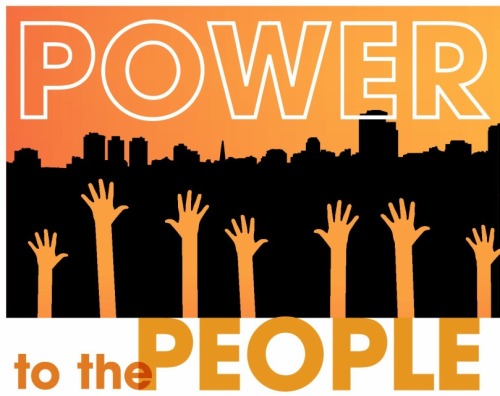Report from Caspar Davis:
I have recently finished reading James Surowiecki's The Wisdom of Crowds ... a good read (Surowiecki is a staff wrier at the New Yorker) and a very interesting book.
Of course, I was interested to see how the book meshes with the work of Jim Rough and Tom Atlee.
Although Surowiecki gives no sign of having heard of either of those people, or of their work, The Wisdom of Crowds explains very clearly how Co-intelligence works, why Dynamic Facilitation is such a powerful technique, and even why random selection is a brilliant way of choosing an effective deliberative group.
Surowiecki's book is based almost entirely on experiments conducted by academics. The main conclusions he draws are: (1) diverse groups are almost miraculously "smart". Collectively, they can find lost ships, or determine the number of beans in a jar or the weight of an ox, far more accurately than any expert; (2) not only are they smarter than their smartest members, but they actually get smarter when some of their members are not-so-smart; (3) the keys to collective intelligence are cognitive diversity, willingness to express opinions different from those already voiced, and a means of aggregating the different opinions.
These three points are all brilliantly addressed by Jim Rough's Dynamic Facilitation. See
http://www.tobe.net/. See also Tom Atlee's comprehensive website,
http://www.co-intelligence.org/
I think that The Wisdom of Crowds is one of the most important books I have read, in large part because of the main stream academic foundation it builds for Co-intelligence and Dynamic Facilitation. There is a good description of the book at
http://www.randomhouse.com/features/wisdomofcrowds/Q&A.html
Here are some quotes that capture some of the book's most important points:
Read more »



